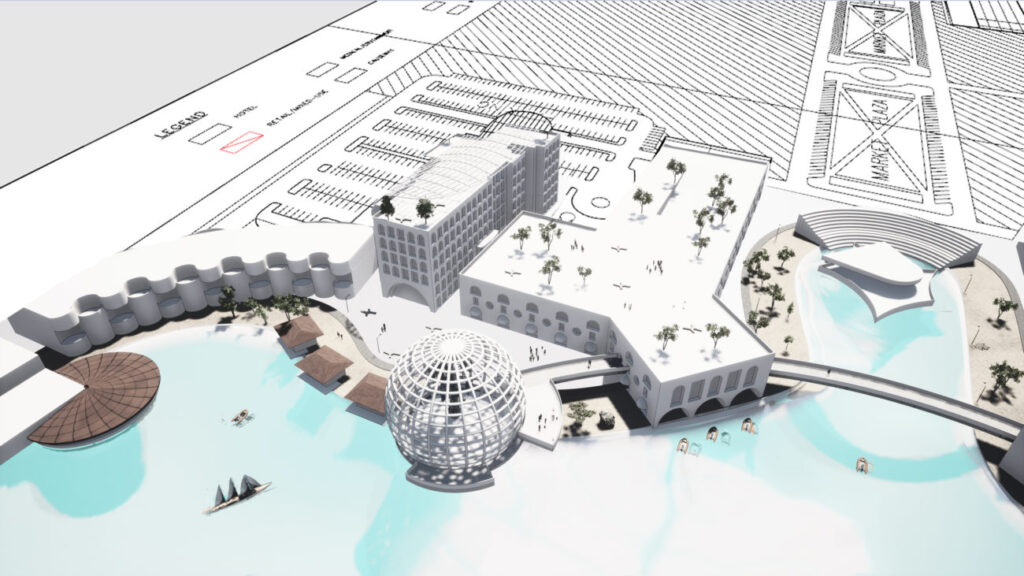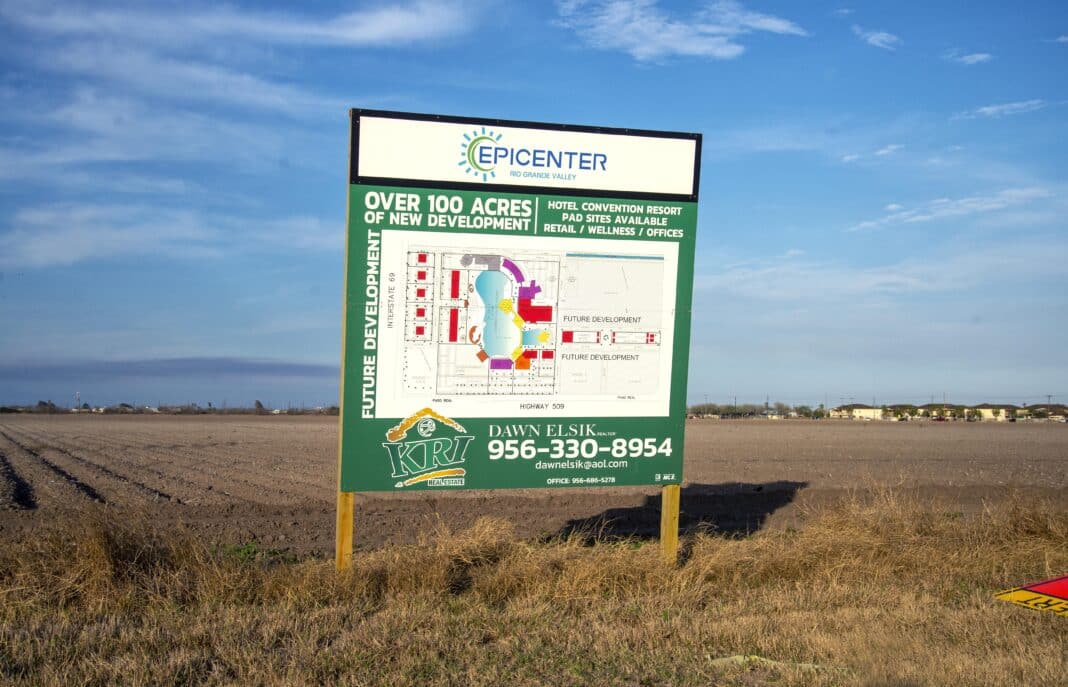SAN BENITO — After about three years of planning, a developer is launching a $115 million project to build a hotel and convention center that could create more than 1,000 jobs while generating millions in tax dollars.
Western Spherical Developers, a Friendswood company, plans to break ground the project’s first phase on 38 acres at Interstate 69 and FM 509 at 11 a.m. Saturday.
“We need it for San Benito,” Mayor Rick Guerra said Tuesday. “It’s a big project. It’s giving us a chance in San Benito. There’s no other investment that big trying to come here. He’s a private investor, everything’s on him. We have to give him a chance. I’m hoping all this comes through.”
Like Guerra, City Commissioner Carol Lynn Sanchez pointed out developer David Mills is investing in the project billed as a game-changer here.
“This is a project that’s been years in the making,” she stated. “I am so excited for the potential this brings to our beautiful community. I know we will make it prosper. This is a large undertaking. However, contrary to large projects I have voted against in the past, the financial burden falls on the developer, not our taxpayers. I can’t wait till all our generations get to enjoy a part of it.”
Commissioner Rene Garcia said RGV Epicenter could become the city’s biggest project in years.
“We’ve longed to have a project of this magnitude — so here it is,” he said. “This is an opportunity we’ve seemed unable to capture. I’ve got a feeling this will be a welcome sight in San Benito, mostly because of economic development. We welcome the developers to San Benito with this multi-phase, mixed-use development to include a hotel, convention center and retail shops. Let’s turn this land into sales-tax producing property.”
Straining city resources
However, Commissioner Pete Galvan argued the project would strain city officials facing other challenges.
“Although economic development is beneficial to generating more tax revenue and increasing quality of life for our citizens, now is not the time for the (city of San Benito) to be entertaining a project of this caliber,” he stated.
“According to the city manager, Manuel De La Rosa, the city will not be holding any liability. I disagree — citizens pay the wages for the city manager, public works, code enforcement and the city attorney to review the progress of the development. City staff and resources will be irresponsibly diverted to a project I am not quite sure we can handle. I would much rather see city resources be diverted to new subdivision development, downtown, Historic Robertson Street, streets, infrastructure, etc.,” Galvan said.

Phase One
The project’s first phase is focusing on construction of a hotel and convention center to include dining, retail space, a wellness center, entertainment and a “lagoon-like water feature” on a 38-acre site, Linda Merritt, the project’s representative, said.
“We’re very excited,” she said. “It will be attached to other elements. Part of the design is to have a good flow and connection to make it walking-friendly. We want to create something very pleasant, very appealing as far as aesthetics.”
Meanwhile, negotiations continue with hotels interested in the project, Merritt said.
“There are final discussions going on,” she said. “There have been multiple interested flags.”
By Saturday, the developer plans to finalize the purchase of 38 acres at the northeast corner of FM 509 and I-69, she said.
As part of the first of three phases, the developer would build a 23,000 square-foot convention center, a 142-room hotel and a five-acre lagoon during a three-year construction period, representatives said.
Three-phase project
In April, commissioners agreed to offer the developer tax breaks.
What would become the city’s biggest project in decades would create 1,013 jobs along with an additional 1,077 jobs during the three-year construction period, the developer said.
In February, Miles told commissioners the RGV Epicenter project would generate $100 million in retail sales, hotel and property tax revenue for the city during a 20-year period.
As part of the overall project, Miles is proposing the development of a sprawling “village” featuring two hotels, an entertainment center, a sports complex, restaurants and retail shops along with a five-acre “Crystal Lagoon.”
Miles said he planned to develop the project in three phases.
During a three-year construction period, the $180 million first phase would develop the convention center and a five-story, 142-room select-service hotel along with features including an entertainment center, performance hall, restaurants, retail space and office suites and the five-acre lagoon.
Prospective tenants include Waypoint 2 Space, a Houston-based company training for commercial space flight, Miles said.
The project’s second and third phases, each funded through $120 million investments, would feature a sports arena and a “medical village,” he said.
Hotel occupancy tax funding
About three years ago, Tammy Huerta, daughter of the late Grammy-award winning singer Freddy Fender, helped spark talks with De La Rosa, Miles said.
Two House bills would help the developer fund costs through hotel occupancy tax revenue.
In 2019, state Sen. Eddie Lucio Jr. and state Rep. Eddie Lucio III helped push House Bills 4347 and 2199, which allow cities to spend hotel occupancy tax revenue generated through developments to fund construction of convention centers and sports and entertainment projects.
“The vision behind the bills we worked hard for are finally coming to fruition,” Sanchez stated Tuesday
RELATED READING




